
Department of English
- Overview
- Overview
- Teaching Learning
- Teaching Learning
- Capacity Building
- Capacity Building
- Student Progression
- Student Progression
- Distinguished Alumni
- Distinguished Alumni
- Program Specific Outcome
- Program Specific Outcome
- Courses
- Courses
- Course Outcomes
- Course Outcomes
- Certificate Courses
- Certificate Courses
Overview
The Department of English took its birth along with the birth of the college in the year 1988. It started its journey with a modest number of students for English, with a single teacher in the first year and another teacher joining in 1989. Since then, the department has grown, if not in leaps and bounds, but gradually and surely. It was indeed a challenge teaching English to students coming from very poor English language background. Many of them were first generation learners; but the young and enthusiastic teachers rose up to the challenge in imparting knowledge about English language and literature. It has been a long journey since then. With the advancement in science and technology and the changing needs of the society, the department has adapted itself admirably in swimming with the current and swimming successfully. Dr. Lucy James was the founder member and head of the department of English for more than two decades and built a solid foundation for English teaching learning process in the college and ensured that a sound library was built, CDs and other gadgets/teaching aids were procured, and English teaching was systemised.
Today, a state of the art Digital Language Laboratory caterers to the varied needs of the students in developing communication and linguistic skills. The smart boards have brought in radical changes in the nature of teaching English language and also literature. Many remedial English classes were conducted along with personality development programmes and coaching in public speaking to the interested students. The department had the singular distinction of conducting an all Goa inter Collegiate debating competition for the ACGL Shields and later for Sesa Goa Shields for more than two decades. With the work of renovation of the old building and annexing of new ones, the competitions have been stopped temporarily and which would soon reappear in their modern attire.
The strength of the department as increased from 2 in the beginning, to 7 teachers at present. It is also proposes to start Honours course in English from the academic year 2022 -23. Masters course in English has already begun from the current academic year and has received excellent response from the students. The alumni of the department have seeped into almost every walk of life and are doing admirable work. Teaching or law, business or sports, public or private sectors, media or journalism, the students of the department have carved themselves a niche with the distinguishing values that they inculcated in the college. There is a rush of new blood and new ideas in the department which is going to bloom and spread its fragrance in the coming years for the benefit of the students and society at large.
Striving for excellence in higher education with an inclusive and humane approach is a never ending process. The changes and the challenges are a part of the odyssey, but we keep doing our bit...
Teaching Learning
The Department of English has always endeavored to offer the best in terms of teaching the language of English and Literature . The Department has adhered to the Goa university Syllabus (CBCS) from 2017 onwards.
Besides reading texts that include poetry, plays , essays and novels the Department strives to explain in detail the subtle nuances of the language using examples from day-to-day life . We have been teaching the appropriate use of the language by also pointing out errors that people do make while communicating at the work place as well as in social circles.
We have helped students perform texts thus making them learn to appreciate the content and style of the author in those texts. They also learn team work when text performances are made a part of the intra semester exams .
We have ,from time to time , adopted experimental ways to teach the different genres of literature . At times , students are asked to recite or enact or interpret different connotations the texts may seem to have .
We have taken students out on field trip whenever they have shown an interest to learn from merging with the outdoors . We have organized activities related to debating , spelling, creative writing ,recitation ,slogan writing , caption creating . We do have a photography club called The Roving Eye , under which we encourage our students to hone their skills in photography. We also started the film club under the umbrella of the Department of English. Under the film club we did screen a few films , at times during compulsory English classes.
On the whole, our teachers in the department are dynamic and they come up with innovative suggestions to teach instead of following the mundane methods.
Capacity Building
The Department of English has been taking small steps towards humble progress. The teachers of the Department have been working towards facilitating students to communicate effectively both in inter-personal as well as social group interactions. The fact that our students hail from the surrounding rural areas from non – English speaking families / backgrounds posed a challenge for us to alleviate the fears of speaking in a foreign language. But we never gave up. The effort is still on, though now we have students who have been exposed to globalized entertainment programmes and social networking that they do come with a stronger and a wider vocabulary base. With the introduction of Spoken English classes and oral exams, students have started taking the oral component seriously.
The Department has a Film Club and a Photography Club. Under the Film Club, we had invited the well known film critic Sachin Chatte to brief our students and staff on film appreciation and also screen few internationally well known films. Under the Photography Club , we did invite Goa’s famous fashion photographer Prasad Pankar to educate our budding photographers on the basics of photography.
The Department has been regularly organizing (barring the covid phase) inter class activities on different aspects of language skills as well as quiz programs on literature.
We accompanied our students to attend the international literature festival at Jaipur in 2020 , just prior to covid breakout . The exposure to internationally acclaimed writers and speakers was extremely beneficial to our students.
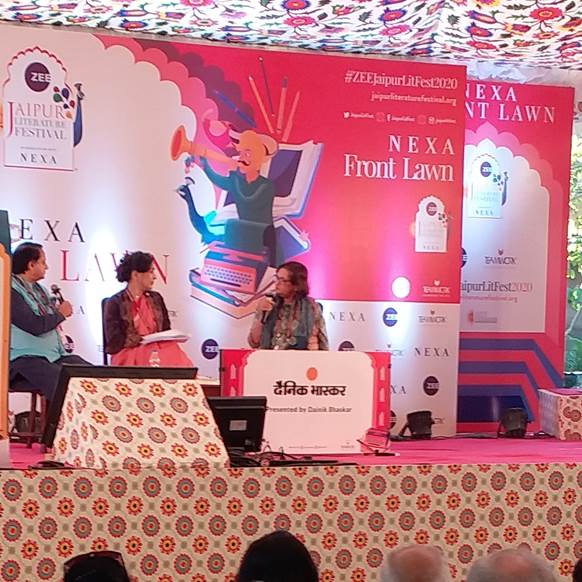
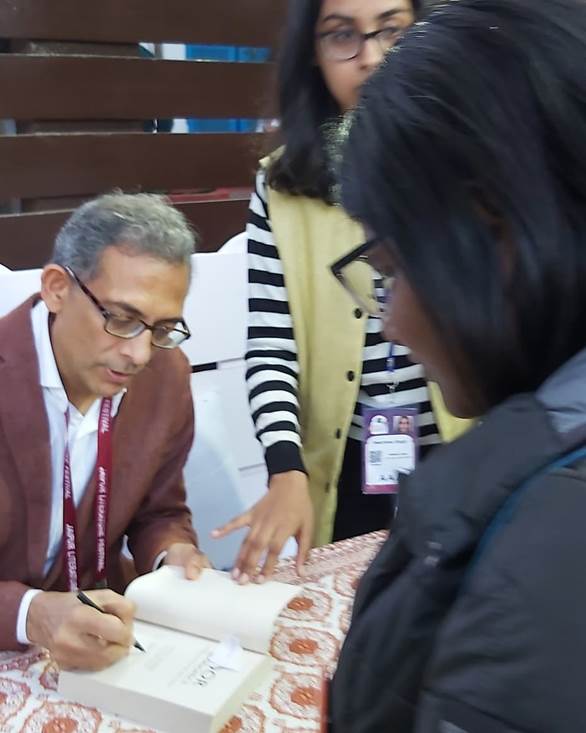
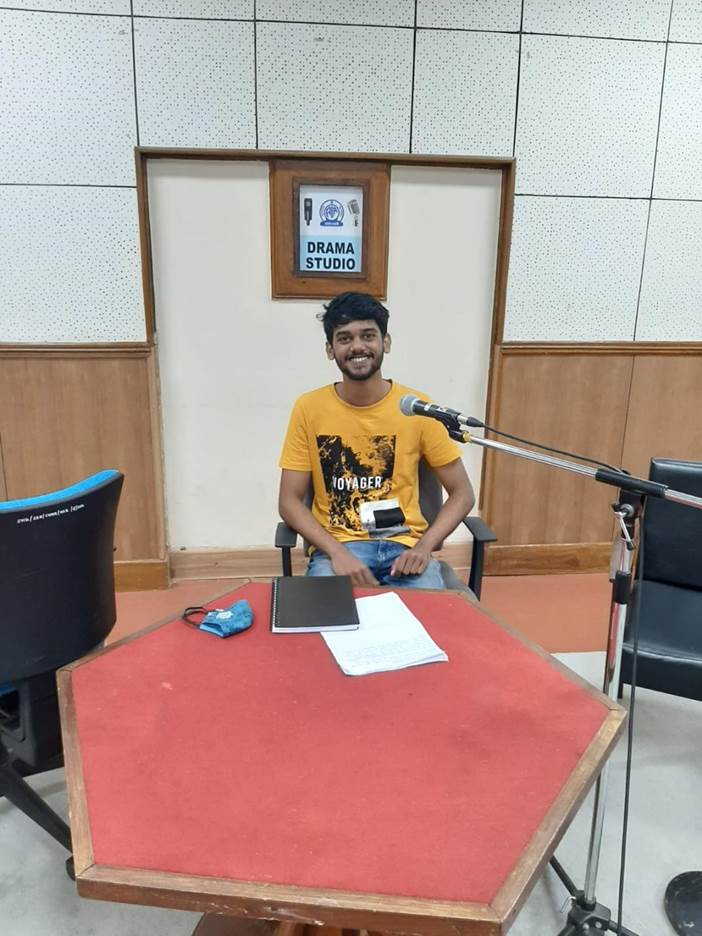
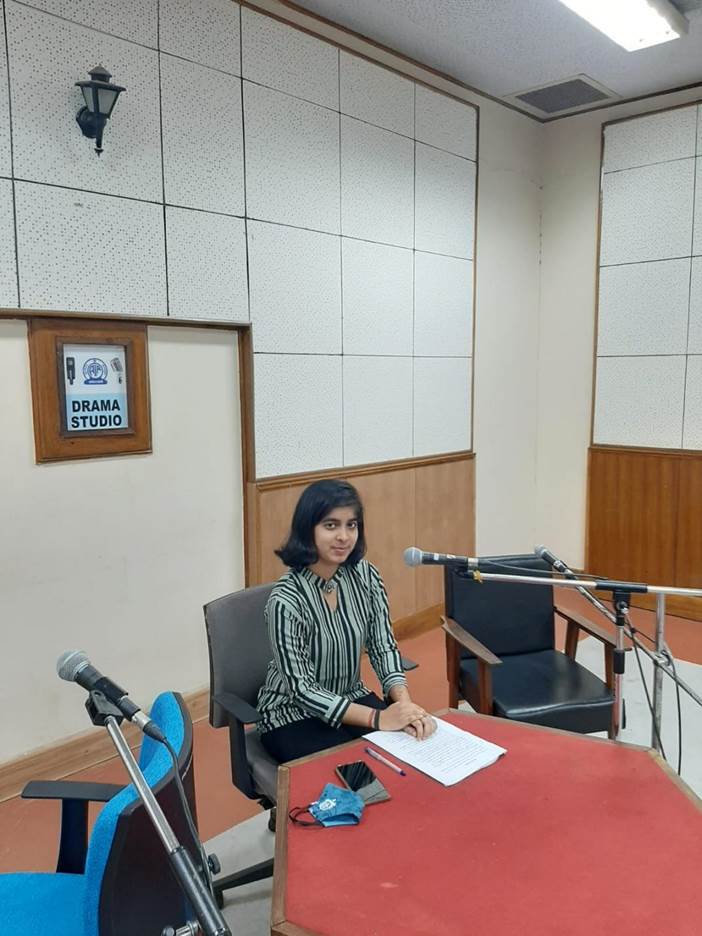
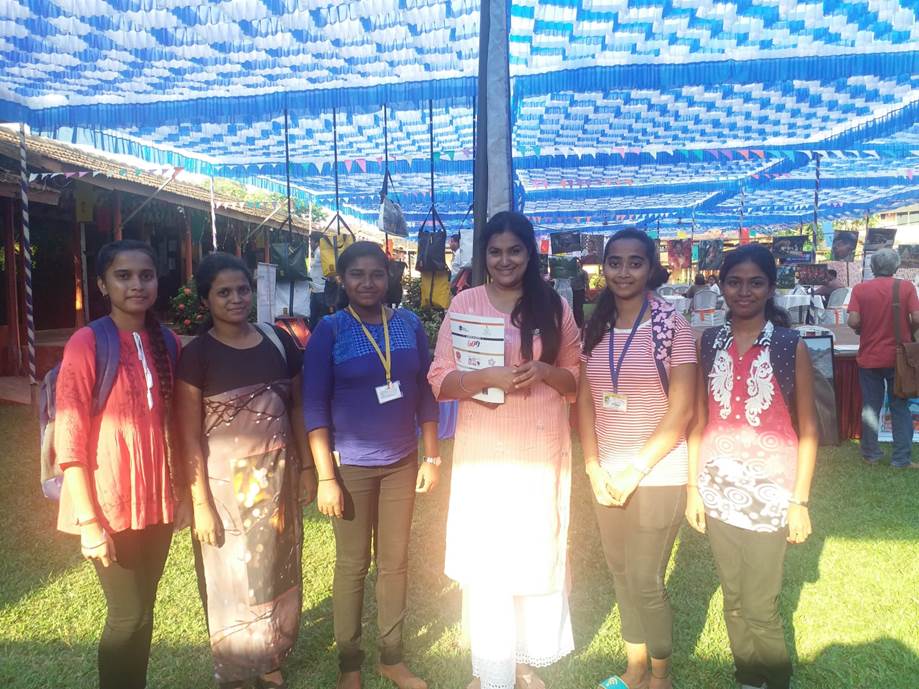

Student Progression, TY Result (2017-2021)
Our students have been doing quite well in Academics after their graduation . Some of our students have pursued higher studies while some of them have taken up jobs to support their family income. Quite a few of them have taken up teaching posts both at the school as well as the college level. From the information we have received telephonically , our students have not remained idle , they have either pursued higher studies or taken up jobs or done some add-on courses.
Distinguished Alumni
We have our Alumni well placed in certain respectable positions in both Government and private service sectors. A few of our Alumni have become Assistant Professors in reputed colleges in Goa.
- Ratika Rane (Assistant Prof. St.Xavier’s College, Mapusa)
- Ms Harsha Ganpule (Assistant Prof. Goa College of Music)
- Anar Sangodkar (Associate prof , Government Polytechnic, Bicholim)
- Shireen Davangere (Associate prof, Narayan Zantye College of Commerce)
- Ms Supriya Pai Kuchelkar (Practising Lawyer)
- Milind Bachikar (Educationist)
- Sneha Sabnis (Journalist)
- Pandurang Naik, (College Director of Physical Education, Dhempe College, Miramar)
- Sandesh Barazankar (College Director of Physical Education, DMC, Assagao and Yoga trainer)
- Leena Kalangutkar ( ADI )
- Aditi Bharve, Associate Professor, Dempo College of Commerce and Economics, established published writer in Marathi
Program Specific Outcomes
PSO 1: The student leaves the portals of the Institute with confidence in articulation of his/her speech , displays an extreme confidence in the fluency of his/her skills of communication.
PSO 2: The student is able to interact with people, at various levels, in a way , that makes a significant impact in his/her relations with fellow human beings.
PSO 3: The learner becomes proficient at both writing skills as well as speaking skills, in addition to reading and listening skills. This gives his/her an added advantage at interviews or public events.
PSO 4: The learner excels in fields that require the skills of anchoring , teaching, pleading cases in courts , writing for a business firm , creative designing for cards / event management, creative writing and publishing , translating from vernacular to English and vice versa.
PSO 5: The student develops an aesthetic approach to life itself, thus improving the quality of his/her own life as well as that of others around him/her. Additionally, he/she is also sensitized to certain social issues and concerns, which enables him/ her to exercise moral responsibilities towards society at large.
PSO 6: The student graduating from the honors program will be at an advantage to critically evaluate, opine, analyze, debate and guide young learners in the field of literatures around the globe. He/she will also be equipped to select a specialization from a wider range of literatures for further study/research in academia.
Courses (Semester wise)
F.Y. B. A. Semester I
|
Course |
Code and Title |
| English (CC) | EGC 201
Core Communicative English 1.1 |
| English
(DSC) |
ENC 115
Introduction to Literature |
| English (AECC) | ENA 201
Spoken English |
| English (GE) | ENG 107
Culture Study Through Film (India) |
F.Y. B. A. Semester II
|
Course |
Code and Title |
| English (CC) | EGC 202
Core Communicative English 1.2 |
| English
(DSC) |
ENC 102
Indian Writing in English |
| English (AECC) | ENA 201
Spoken English |
| English (GE) | ENG 123
Media and Communication Skills |
S.Y. B. A. Semester III
|
Course |
Code and Title |
| English (CC) | EGC 203
Advanced Core Communicative English 2.1 |
| English
(DSC) |
ENC 103
British Poetry and Drama: 14th to 17th Centuries |
| English (SEC) | ENS 101
English for Competitive Exams |
| English (GE) | END 110
Culture Study through Film (America) |
S.Y. B. A. Semester IV
|
Course |
Code and Title |
| English (CC) | EGC 204
Advanced Core Communicative English 2.2 |
| English
(DSC) |
ENC 104
British Poetry: 17th and 18th Century |
| English (SEC) | ENS 103
Soft Skills |
| English (GE) | ENG 124
Text and Performance |
T.Y. B. A. Semester V
|
Course |
Code and Title |
| English Core | ENC 105
American Literature |
| ENC 106
Modern European Drama |
|
| English Elective | END 103
Modern Indian Writing in English Translation |
| END 107
Literature of the Indian Diaspora |
|
| END 105
British Literature: Post World War II |
|
| END 106
Science Fiction and Detective Fiction |
T.Y. B. A. Semester VII
|
Course |
Code and Title |
| English Core | ENC 108
Postcolonial Literature |
| ENC 109
Women’s Writing |
|
| English Elective | END 109
Partition Literature |
| END 102
Travel Writing |
|
| END 108
World Literatures |
|
| English Project | ENP Project |
Course Outcomes
F.Y. B. A. Semester I
| Course | Code And Title |
On Completion Of This Course The Learner Will Be Able To : |
| English (CC) | EGC 201
Core Communicative English 1.1 |
1. Integrate basic English communication skills at a personal and a professional level and follow instructions, directions and make requests in day-to-day interaction. (PSO 3)
2. Use the English language, in general, in the spoken, and written modes of communication. (PSO 1) 3. Write in different styles…narrate, describe, persuade as well as argue and apply them at workplace. (PSO 3) 4. Identify and rectify errors in grammatical usage as well as the syntax. (PSO 4) |
| English
(DSC) |
ENC 115
Introduction to Literature |
1. Explain basic literary concepts from literary forms like the novel, poetry and drama. (PSO 4)
2. Identify major literary genres and explain different forms of literature. (PSO 4) 3. Critically analyse different forms of poetry. (PSO 4) 4. Critique the prescribed novels and plays with respect to their socio-economic background. (PSO 5) |
| English (AECC) | ENA 201
Spoken English |
1. Summarise facts, ideas and opinions clearly. (PSO 1)
2. Extrapolate skills of communication meaningfully and clearly. (PSO 1) 3. Use appropriate vocabulary and accurate grammar. (PSO 3) 4. Describe, discuss, debate, narrate, argue and refute any counter argument and persuade courteously. (PSO 2) |
| English (GE) | ENG 107
Culture Study Through Film (India) |
1. Explore ‘Film’ as a medium of communication. (PSO 2)
2. Explain the thematic and stylistic concerns of a film. (PSO 4) 3. Discuss the issues and concerns of Indian society as portrayed through such films. (PSO 5) 4. Elaborate on regional Indian Cinema. (PSO 4) |
F.Y. B. A. Semester II
|
Course |
Code And Title |
On Completion Of This Course The Learner Will Be Able To : |
| English (CC) | EGC 202
Core Communicative English 1.2 |
1. Prepare individual presentations using a variety of digital software. (PSO 3)
2. Compose and present a digital story. (PSO 4) 3. Identify and distinguish between different genres of writing. (PSO 4) 4. Write a book/film review. (PSO 4) 5. Interpret graphic representation of data. (PSO 4) |
| English
(DSC) |
ENC 102
Indian Writing in English |
1. Identify trends in Indian writing. (PSO 4)
2.Assess Indian writers of repute, thus paralley, learning to differentiate between writers writing from foreign lands and our native writers. (PSO 4) 3.Explain the changing strain of thinking among contemporary Indian writers. (PSO 4) 4. Analyze the sensibilities of both Indian writers and the Indian readers. (PSO 5) |
| English (AECC) | ENA 201
Spoken English |
1. Summarise facts, ideas and opinions clearly. (PSO 1)
2.Extrapolate skills of communication meaningfully and clearly. (PSO 1) 3.Use appropriate vocabulary and accurate grammar. (PSO 3) 4. Describe, discuss, debate, narrate, argue and refute any counter argument and persuade courteously. (PSO 2) |
| English (GE) | ENG 123
Media and Communication Skills |
1. Infer the impact of media on communications within society. (PSO 5)
2. Apply critical thinking skills to effective oral and written communication skills. (PSO 3) 3. Develop an improved sense of self-confidence and self-efficacy. (PSO 1) 4. Demonstrate an awareness of their responsibilities, should they decide to pursue a career in media. (PSO 2) |
S.Y. B. A. Semester III
| Course | Code And Title |
On Completion Of This Course The Learner Will Be Able To : |
| English (CC) | EGC 203
Advanced Core Communicative English 2.1 |
1. Utilise advanced communicative skills in oral and written communication. (PSO 3)
2. Use e-communication in blogs, twitter and e-mail. (PSO 2) 3. Demonstrate advanced comprehension skills. (PSO 1) 4. Analyse and examine texts effectively. (PSO 4) |
| English
(DSC) |
ENC 103
British Poetry and Drama: 14th to 17th Centuries |
1. Interpret and critique the historical, cultural, economic and political scenario and movements of the period under study. (PSO 4)
2. Explain the concepts of Renaissance and Humanism and therefore assess the literature of the prescribed era. (PSO 4) 3. Differentiate poetry of different strains, and assess Elizabethan poetry as well as Metaphysical poetry.(PSO 4) 4. Use dramatic devices employed in the plays of the playwrights of the prescribed era. (PSO 4) |
| English (SEC) | ENS 101
English for Competitive Exams |
1. Develop proficiency in the language. (PSO 3)
2. Use grammatically accurate language (PSO 1) 3. Distinguish different genres of writing. (PSO 4) 4. Use communication skills in formal correspondence. (PSO 3) 5. Explain an idea or summarize an idea. (PSO 2) |
| English (GE) | END 110
Culture Study through Film (America) |
1. Critique American Cinema vis-à-vis select memorable films. (PSO 4)
2. Discuss thematic concerns and stylistic devices used in films. (PSO 4) 3. Examine Film Studies. (PSO 4) 4. Relate his sensibilities to that portrayed in foreign films. (PSO 5) |
S.Y. B. A. Semester IV
|
Course |
Code And Title |
On Completion Of This Course The Learner Will Be Able To |
| English (CC) | EGC 204
Advanced Core Communicative English 2.2 |
1. Reconstruct and rewrite prose passages. (PSO 3)
2. Write Reports. (PSO 3) 3. Analyse and discuss poetry. (PSO 4) 4. Develop research proposals. (PSO 3) |
| English
(DSC) |
ENC 104
British Poetry: 17th and 18th Century |
1. Identify the texts keeping in mind the trends of the age. (PSO 4)
2. Identify great writers and their works of Literature. (PSO 4) 3. Discuss about the socio-cultural, historical milieu of the times. (PSO 5) 4. Differentiate the subtle undercurrents in themes and styles of writing. (PSO 4) |
| English (SEC) | ENS 103
Soft Skills |
1. Demonstrate proficiency in spoken communication. (PSO 1)
2. Develop overall communication skills. (PSO 1) 3. Utilise inter-personal skills. (PSO 3) 4. Develop self-confidence to conduct himself in different situations. (PSO 1) |
| English (GE) | ENG 124
Text and Performance |
1. Explain theories of performance in Drama, historical overview of Western and Indian theatre and theatre forms of certain periods. (PSO 4)
2. Examine various theatrical forms performed in different types of theatres and participate in speech training, floor exercises and expressions. (PSO 4) 3. Distinguish the classic theatre forms from the contemporary trends in Drama. (PSO 4) 4. Apply the theories learnt and prepare in direction of plays, stage setting, lighting, voice modulation, costumes, recording and acting. (PSO 4) |
T.Y. B. A. Semester V
| Course | Code And Title |
On Completion Of This Course The Learner Will Be Able To |
| English Core | ENC 105
American Literature |
1. Explain the historical, political , social and cultural aspects of America from early beginnings to modern contemporary times. (PSO 4)
2. Define the concept of American Dream. (PSO 4) 3. Explain social realism and the American Novel. (PSO 4) 4. Appraise Black Women’s writings. (PSO 4) |
| ENC 106
Modern European Drama |
1. Appraise the socio-cultural milieu and the politics that shaped modern theatre in Europe. (PSO 6)
2. Identify and explain features of the Theatre of the Absurd. (PSO 6) 3. Discuss innovations in modern European drama. (PSO 6) 4. Breakdown European drama with reference to realism, Tragedy and heroism, text and performance. (PSO 6) |
|
| English Elective | END 103
Modern Indian Writing in English Translation |
1. Distinguish different literatures of India and thereby explain the cultures of regions or communities of our diverse land. (PSO 4)
2. Differentiate the styles of different authors/poets /dramatists/short story writers. (PSO 4) 3. Identify major themes of different prescribed texts and thereby identify the thematic concerns of a writer of a particular period. (PSO 4) 4. Discover the sensibilities of local/native population. (PSO 5) |
| END 107
Literature of the Indian Diaspora |
1. Explain the parameters of the concepts such as ‘ diaspora’, ‘ exile’, and ‘alienation’. (PSO 6)
2. Appraise the framework within which the writer of the Indian Diaspora operates. (PSO 6) 3. Analyze the thematic concerns and stylistic visions of diasporic writers through the prescribed texts. (PSO 6) 4. Identify the sense of nostalgia as depicted in diasporic writing. (PSO 5) |
|
| END 105
British Literature: Post World War II |
COURSE OUTCOME : At the end of the course the student will be able to:
1. Demonstrate an understanding of post-modernism in British Literature. (PSO 6) 2. Define and explain terms such as intertextuality, experimentation and metafiction. (PSO 6) 3. Classify experimental trends in literature. (PSO 6) 4. Analyze the cultural and countercultural impacts of World War II on literary works. (PSO 6) |
|
| END 106
Science Fiction and Detective Fiction |
1. Define the terms ‘science fiction’ and ‘detective fiction’. (PSO 6)
2. Identify criminal identities in crime fiction. (PSO 6) 3. Evaluate the ethics of stereotyping in Science and detective fiction. (PSO 6) 4. Examine the ramifications of censorships in literature. (PSO 6) |
T.Y. B. A. Semester VII
|
Course |
Code And Title |
On Completion Of This Course The Learner Will Be Able To |
| English Core | ENC 108
Postcolonial Literature |
1. Explain trends such as de-colonisation, globalization. (PSO 4)
2. Discuss literature and Identity politics. (PSO 2) 3. Relate to sensibilities of the post-colonial audiences. (PSO 5) 4. Develop sensitivity towards understanding and accepting region, race and gender. (PSO 5) |
| ENC 109
Women’s Writing |
1. Define the genre of women’s writing. (PSO 6)
2. Evaluate the contribution of women to the body of knowledge and literature. (PSO 6) 3. Appraise women’s perspectives through reading of texts.(PSO 5) 4. Differentiate women’s writings from other genres in literature. (PSO 6) |
|
| English Elective | END 109
Partition Literature |
1. Identify the impact of the events that led to the partition of India and its aftermath. (PSO 4)
2. Associate the sensibility with which the writers have documented the trauma of Partition. (PSO 5) 3. Distinguish the concepts of Colonialism, Nationalism, Communalism, Violence, Homelessness and Exile. (PSO 4) 4. Assess the depiction of women in Partition literature. (PSO 4)
|
| END 102
Travel Writing |
1. List the perspectives and genres of travel literature. (PSO 6)
2. Evaluate how travel writers relate their experiences about the lands they travel to. (PSO 6) 3. Describe the salient features of the cultures of a land. (PSO 6) 4. Appraise the perspectives of different travelers. (PSO 6) |
|
| END 108
World Literatures |
1. Identify the ideas, techniques and styles of World Literatures. (PSO 6)
2. Discover world writers of the 20th and 21st centuries. (PSO 6) 3. Discuss concepts like Displacement, Memory, Diaspora , Hybridity, Race and Culture. (PSO 6) 4. Analyse politics in poetry. (PSO 5) |
|
| English Project | ENP Project | 1. Research on a topic of interest. PSO 4
2. Develop an analytical bent of mind in approaching a text/writer/issue. (PSO 4) 3. Outline and extrapolate his/her opinions on a topic logically. (PSO 3) 4. Develop an inclination towards intensive and extensive research. (PSO 4) |
Short term Certificate Courses
The Department of English has a Film Club under which we had conducted a short term certificate course of 30 hours on Film Making under the tutelage of well known Konkani Film Director Mahesh Rane In May 2019. Our students, faculty as well as general public were participants of the above mentioned course.
